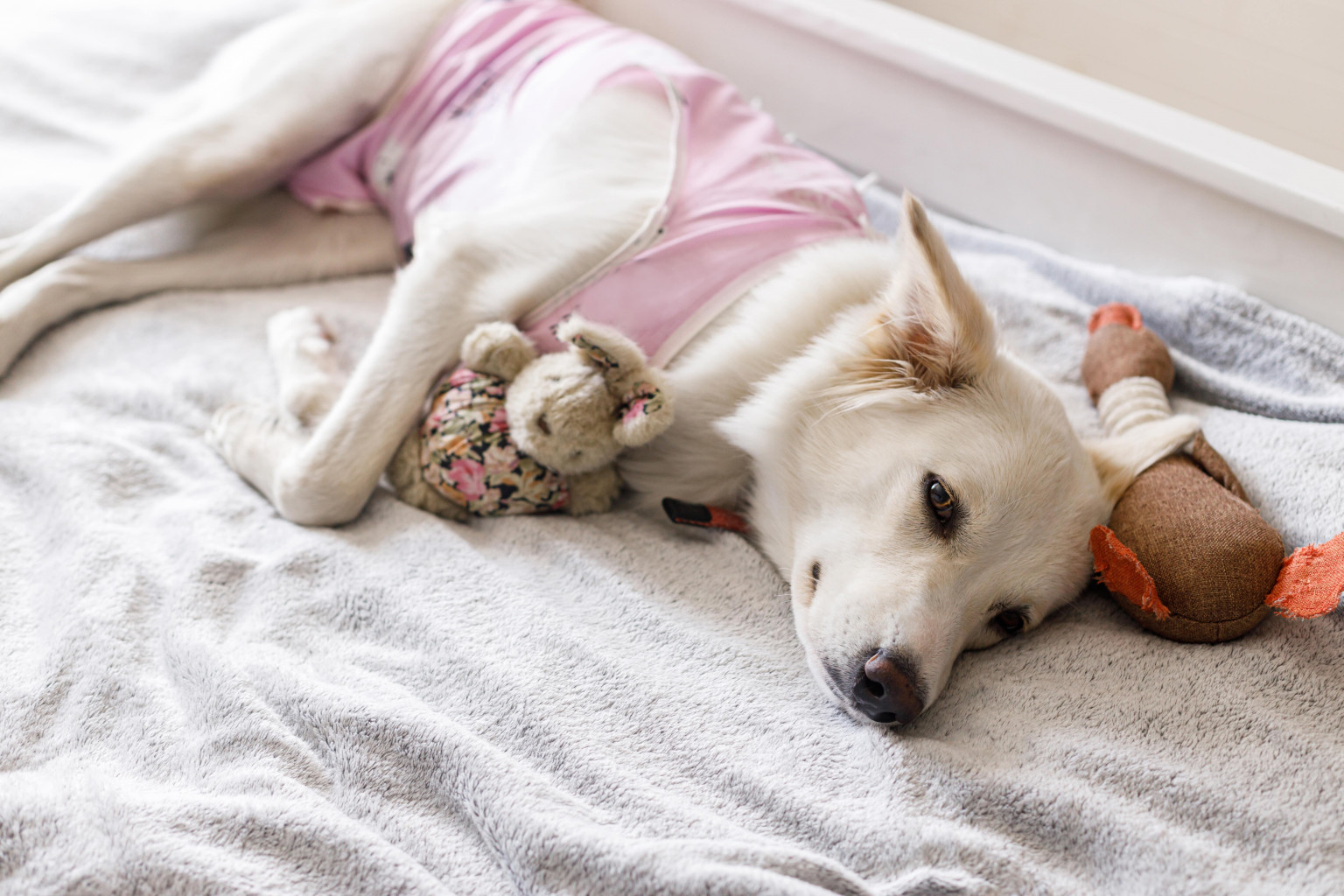
After any abdominal surgery, your pet is likely to be feeling unsettled and not themselves, due to both their initial condition and the medications they’ve been given for their recovery.
It’s important to closely monitor your pet’s behaviour as they recover to make sure everything is going smoothly.
Depending on your pet’s specific procedure, your vet will give you instructions on medication, dressings, and what to look for.
1. Nutrition: food and water post-surgery
Your pet may not have much of an appetite immediately after surgery, and too much water may cause nausea.
Start with small amounts of food and water and gradually return to their normal feeding routine over the next few days.
2. Medication: ensuring your pet’s well-being
Your pet may have been prescribed antibiotics, painkillers, or other medications following their surgery. It’s important to follow the vet’s advice precisely on dosages and timing.
Make sure you give all the prescribed doses even if your pet seems to be feeling better (and even if they don’t enjoy taking their medicine!).
3. Rest and recovery
Rest is crucial for your pet’s recovery. Provide a comfortable, quiet space for your pet to recover. Use blankets or a pet bed to cushion any hard surfaces.
Restrict your pet’s activities as much as possible for the first few days, especially avoiding jumping, running, and rough play. Your veterinarian will guide you on when your pet can slowly return to their normal activities.
4. Wound care: preventing complications
Keep an eye on the surgical wound. Redness, swelling, discharge, or a foul smell could be signs of an infection.
Ensure your pet is not licking or scratching at the incision, as this could lead to complications.
Your vet may have provided a cone or surgical suit, and your pet should wear it for as long as instructed.
5. Monitoring behaviour: signs to watch for
If your pet seems lethargic or unresponsive, refuses to eat or drink for multiple days, or if their gum colour changes, contact your vet immediately.
It’s normal for your pet to be a bit quiet or withdrawn immediately after the surgery, and potentially for a few days afterwards. After your visit to Vets Now, we will let your daytime vet know that your pet has seen us, so they will have a record of your visit.
If you do have any concerns about your pet, you can contact your daytime vet during their normal hours, or if out of hours, contact Vets Now or our partnered telehealth service PawSquad is here to help.

